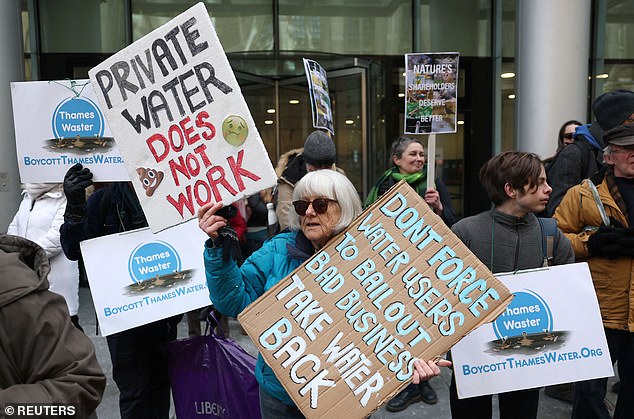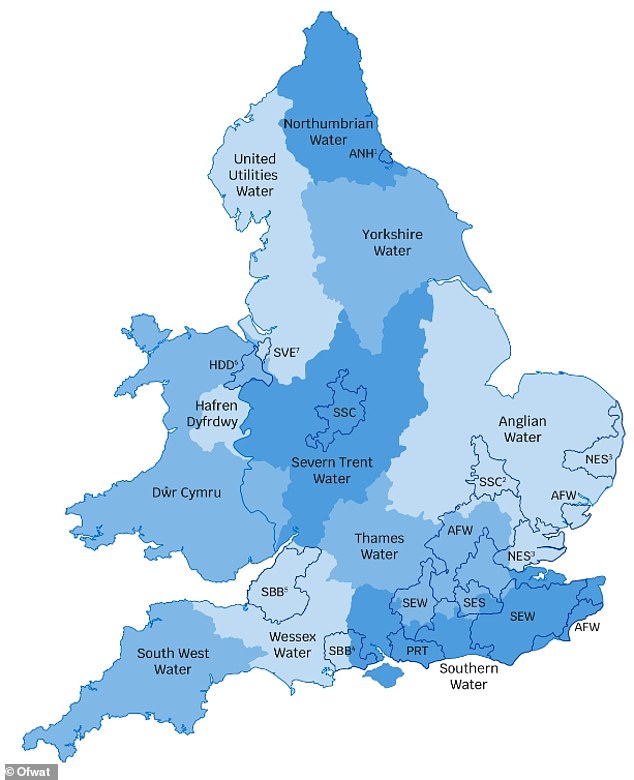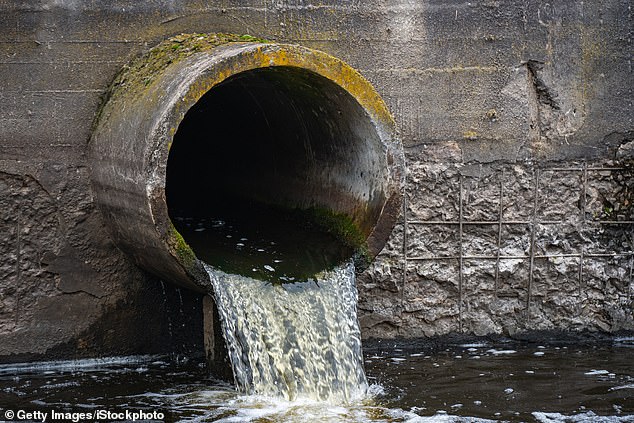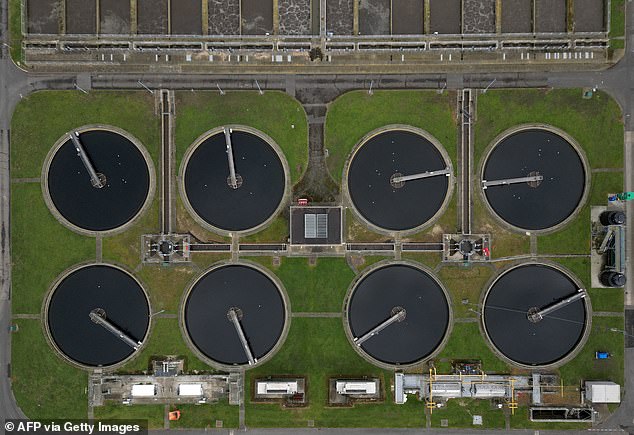Middle class families could be hit with soaring water bills under Labour plans to lower the costs for Britain’s poorest households.
Ministers are being urged to approve a new nationwide scheme that would subsidise bills for low income families.
The proposed national social tariff is due to be presented to Prime Minister Sir Keir Starmer in a review of the water industry on Monday.
However, there are fears that middle class families could end up bearing the brunt of the charges and see their water bills increase.
Shadow housing secretary Kevin Hollinrake told The Telegraph: ‘Family homes across middle England face soaring water bills under the Labour Government, thanks to the triple whammy of above-inflation hikes, higher tariffs on multi-person households, and robbing Peter to pay Paul to fund tariffs for those on welfare benefits.’
‘We can’t just keep increasing taxes and charges – record taxes are already making life too hard for people,’ he added.
‘The Government should be standing up for the makers, not the takers.’
There is currently no nationwide scheme to help poorer customers – with a patchwork of subsidy programmes in place across different suppliers.

Protesters hold placards during a demonstration opposing court approval for Thames Water’s debt restructuring plan in February

The various water firms providing supplies to customers across England and Wales

Middle class families could be hit with soaring water bills under Labour plans to lower the costs for Britain’s poorest households (file photo)
Consumer groups have suggested that a national social tariff could unify the level of support received and help an extra two million people get money off their bills.
However, such a scheme was rejected by the previous Conservative government due to concerns about the impact it would have on wealthier households.
On Monday, a landmark review of the water industry led by Sir John Cunliffe is due to be published.
He announced his interim findings last month, when he revealed he would bring forward proposals to ‘strengthen’ the system of social tariffs.
Sir John wrote: ‘The commission is looking at how to more effectively support customers who are struggling to pay their bills.
‘This includes looking at options to strengthen social tariffs and to tailor water bills to better reflect household consumption.’
Currently, water firms can only raise money from their own areas and consult their customers on how much they would be willing to pay.
However, more and more households are being placed on social tariffs as they struggle to keep up with the soaring costs of living.

Pictured: Thames Water’s Beddington Sewage Treatment Works near Croydon, south London
Statistics from water regulator Ofwat show that across Britain one in ten customers are now receiving support with their bills.
But the data varies wildly per region with South West Water having the lowest number of customers on social tariffs.
Meanwhile, United Utilities, which covers the North West of England, has the highest at 15 per cent.
It comes after it was revealed that household water bills would rise by an average of £123 from April 1, equating to an increase of around £10 a month.
The rise, confirmed by industry body Water UK, will take the average water and wastewater bill from £480 to £603 for the next year alone.
Water firms are facing huge problems with their drains, reservoirs and sewers, leading to vast amounts of pollution spilling into rivers and waterways.
That means firms are needing to spend billions on upgrading their systems.
Because they are privatised, they also want to turn a profit so they can keep getting more investment from shareholders.
To make matters worse, many face huge debt piles. The 10 biggest water companies have about £60 billion of combined debt.
Regulator Ofwat has ‘failed’ and ‘run up the white flag’ by announcing rises in household water bills, the chairman of an environmental campaign group said.
Charles Watson, from River Action, said: ‘The shareholders in these companies are just laughing all the way to the bank.’












